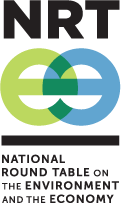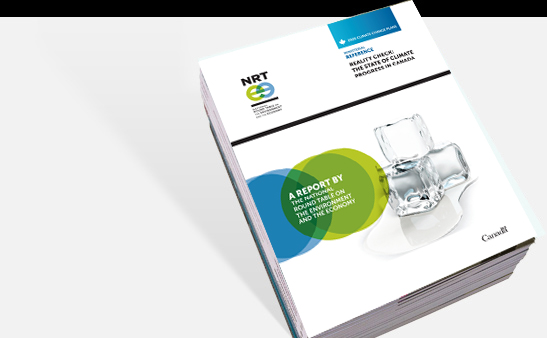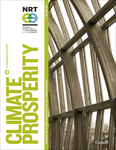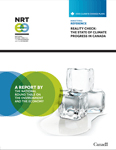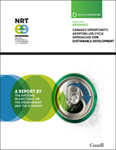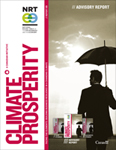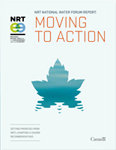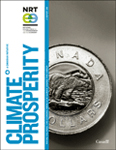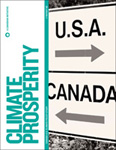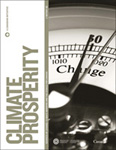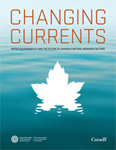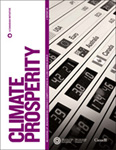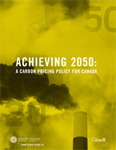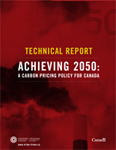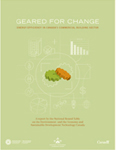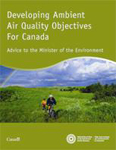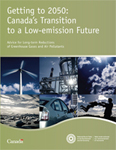June 13, 2012 – New Release – Canada Not on Track to Achieve 2020 Climate Target
Progress made but planned emission reductions will only take us halfway to the target, says NRT.
Wednesday, June 13, 2012 – Despite making progress in reducing greenhouse gas emissions, Canada is not on track to achieve the federal government’s 2020 reduction target of 17% below 2005 levels, concludes a new report by the National Round Table on the Environment and the Economy. “Canada will not achieve its 2020 GHG emission reductions target unless significant new, additional measures are taken. More will have to be done. No other conclusion is possible”, states the NRT report.
Reality Check: The State of Climate Progress in Canada was undertaken last year at the request of the federal Minister of the Environment to inform the government’s regulatory approach to reducing emissions. NRT’s research is based on original modelling using Environment Canada’s data as a principal source, as well as extensive consultations with the provinces and territories, academic and public policy experts.
The report serves as a reality check on the state of climate progress in Canada today. It reinforces some key truths about climate policy in Canada: that a national target needs a concerted national policy behind it, that policy uncertainty still exists and stifles progress, that the country has yet to implement effective policies to address some large sources of emissions, and that all this means progress has been and will remain difficult and uneven across the country.
Assessing the Gap
The report shows that Canada is making significant progress toward its 2020 target but will not get there with only existing and proposed climate policy measures by all governments. More precisely, the NRT found that:
- Combining all existing and proposed federal, provincial and territorial climate policies and actions would lead to a reduction of 104 Mt CO2e in 2020, which represents almost 50% of the required emission reductions to meet Canada’s target of 607 Mt CO2e in 2020 – but an emissions gap of 117 Mt CO2e remains.
- Provincial policies are driving the largest portion of emission reductions to date – 75% of all emission reductions by 2020 – although the federal portion should rise to approximately a third by 2030.
- Provinces are making progress toward achieving their own targets, but almost all will need to introduce additional measures to meet them. Only Nova Scotia, and possibly Saskatchewan, are forecasted to achieve their targets.
Closing the Gap
According to NRT President and CEO, David McLaughlin, time is short on taking steps to bring about the necessary emission reduction and that as time goes on, the more difficult and expensive it will be for Canada to meets its objectives. “Our analysis could not be clearer: Canada cannot cherry-pick its way to 2020”, he said. “This will require a more engaged and integrated climate change policy approach at the pan-Canadian level than what we have seen to date”.
In the report the NRT notes that while the target is not yet out of reach, the cost of additional policies to close the gap will be higher on average than policies pursued to date. The report shows that while almost half the emission reductions to date from existing and proposed measures have been in the low-cost range of $50 per tonne and under, achieving Canada’s 2020 target in the most cost-effective way will require an increasing share of emission reductions to come from medium and high cost measures of up to $150 per tonne.
For Canada to achieve targets cost-effectively, the Round Table estimates that most emission reductions will have to come from the oil and gas sector, followed by manufacturing, electricity generation, and transportation. Also, emission reductions from Alberta will need to account for more than half of all future reductions to meet the 2020 target, followed by Ontario and British Columbia.
Advice & Recommendations
Reality Check recommends that advances in future Canadian climate policy meet three tests: that they are collaborative, coherent, and considered – a 3C approach. Collaborative across governments by meeting regularly and specifically on climate policy; Coherent by acting together in a coordinated way to reinforce each other’s policies and determine who is best positioned to act in one area over another; and Considered by undertaking regular progress reports and assessments of how well Canada is meeting targets and forecasting to help consider future actions.
The NRT offered 9 recommendations to do so including complementing the federal sector-by-sector regulatory approach with base-level carbon pricing; announcing a detailed plan as to which sectors will be regulated and when; using equivalency agreements with provinces for flexibility; and regular independent GHG progress forecasts.
As Vice-Chair of the NRT, Bob Slater called on all governments and policy makers to read and consider the Round Table’s advice to move ahead. “Canada will not make the progress it needs without this frank assessment, nor will Canada achieve its climate goals without considering a better way to unify governments in a more coordinated approach with shared understanding that all must contribute”, he stated.
-30-
Information:
Marie-Josée Lapointe
Director, Communications and Public Affairs
National Round Table on the Environment and the Economy
613.943.2054 / 613.617.4436
mariejosee.lapointe@nrtee-trnee.gc.ca
